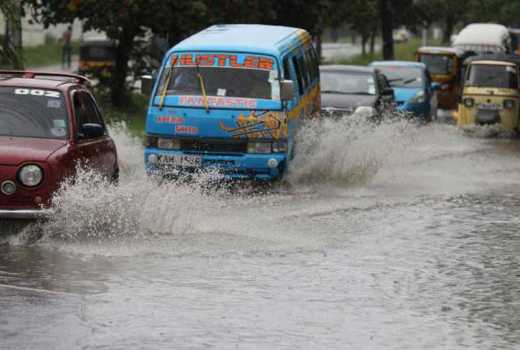×
The Standard e-Paper
Kenya’s Boldest Voice

Why does rain lead to traffic gridlocks yet the width of the roads do not change? Tuesday last week was a classic example.
It took me one and half hours to get out of Upper Hill and another two and half hours to get from Nyayo roundabout to Standard Media Group Head Office, only six kilometres away on Mombasa Road.







